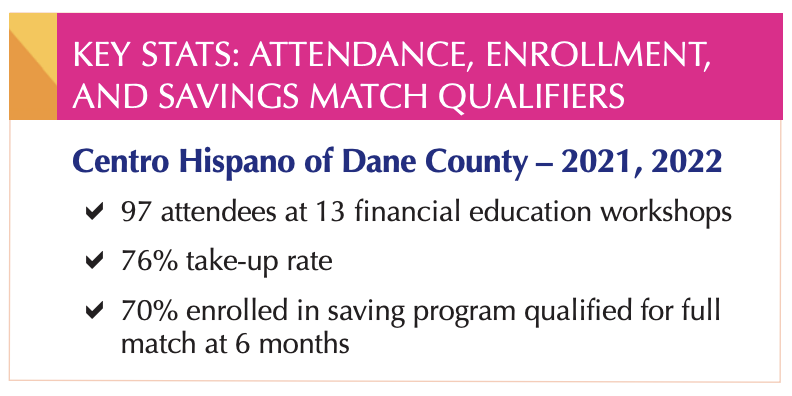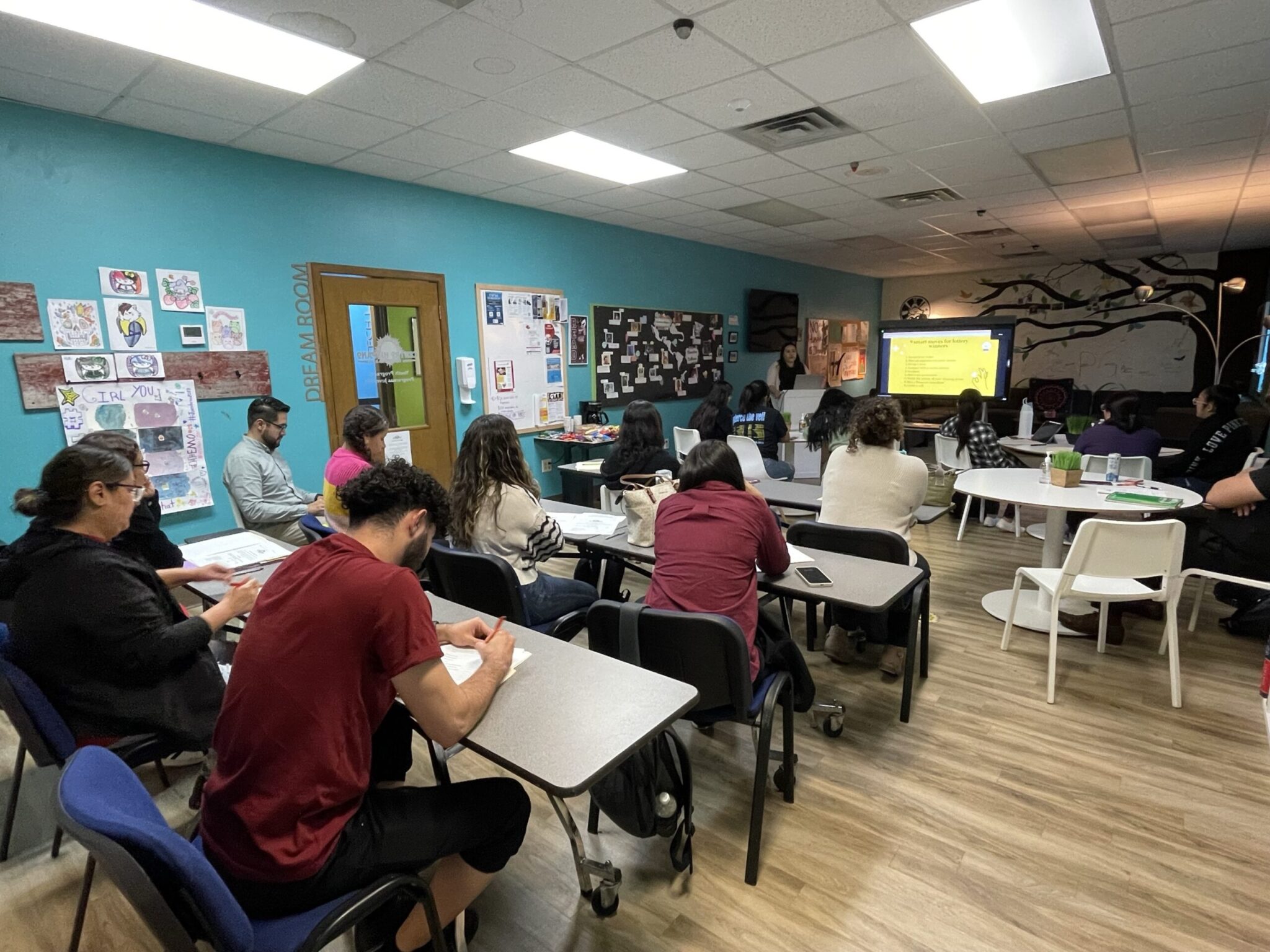Latina women are among the longest living, yet lowest earners in America, leaving them vulnerable to retirement without savings.
That’s according to a report from Centro Hispano of Dane County’s Latina Savings Project, which aims to change that by increasing financial wealth for Latinas across the nation.
The report showed that with increased financial literacy from a trusted source and a savings match incentive, 70 percent of participants met their financial savings goals for six months, despite low to moderate earnings.
“We do this collective work of taking care of others and it is important that we take care of ourselves,” Norma Gallegos Valles of Centro Hispano of Dane County recently said on WPR’s “The Morning Show.”
“We as Latina women are part of the fabric of economic growth, and that includes retirement,” she added.
The following has been edited for clarity and brevity.
Kate Archer Kent: Before we dive into the report, can you talk about why the Latina Savings Project targets this group of people?
Norma Gallegos Valles: This project began in 2021 due to the lack of resources around financial literacy and wealth building for the Latino community in Dane County.
We wanted to specifically do this project for Latina women because statistically we know that Latina women live the longest, yet when they get to retirement, about 50 percent of them between the ages of 55 and 65 don’t have retirement accounts.
We know that Latina women also tend to take care of their family first, before saving for retirement. So we wanted to address this from a very strong base of what Latina women already know and what they’ve learned throughout their journeys as caregivers.
KAK: What were the results of the project?
NGV: We saw through Latinas In Savings here in Madison that 76 percent of our attendees accepted the challenge of starting a savings match.
Part of the challenge was if they wanted to join, they had to save $20 for six months. And at the end, through this partnership with Women’s Institute for Secure Retirement, the Mexican American Women’s National Association and TruStage, we were able to match $120.
We saw 70 percent success for people that were able to get the match after the six months.
A lot of the testimonials that we gathered said it was the beginning for many Latina women to start their savings account.

KAK: What are the aspects of the education workshops?
NGV: During a two-and-a-half hour workshop, we talk about different topics. We do spend a lot of time talking about different areas of retirement.
Oftentimes, we believe that only 401K is an outlet for that and we learned that there’s other options, such as IRAs or Roth Accounts, that can help you elevate your savings and keep something sustainable for the years to come.
When it comes to Latino families, there’s still a lack of trust between other non-Latino organizations. This includes financial institutions, such as banks and credit unions.
KAK: Can banks do more here to help build trust among its Latina customers?
NGV: Yes, we found that it is critical to partner with nonprofit organizations that serve the Latino community. Centro Hispano has been here for 40 years, so there is knowledge in the collectiveness of our community and there is wisdom. When financial institutions partner with us, it’s easier to build that bridge.
We know that credit unions and banks have financial resources in Spanish or English. They’ve shared this with us — that when they offer workshops, they’re usually not very well attended.
However, when they do come to Centro, they find that attendance is a success. And that’s because we already have a connection with the community and we already have those relationships.
KAK: There’s only so much frugality and savings. At some point, wages have to be fair to live in these times. What can you say about that lack of equality?
NGV: I think we see financial leaders here as a tool. It is critical that we don’t rely on financial literacy to create pathways out of poverty.
When you’re making $15 an hour and you are sustaining a family of two or three and you’re paying a rent that is $1,800 a month or more, you can still save, but perhaps you might be able to save minimal amounts.
We do advocate for a fair, livable wage here in Madison and Dane County. The cost of living continues to increase and we can’t keep up with a $15 an hour wage, even $18.
Cover Photo: Centro Hispano of Dane County puts on financial workshops through the Latina Savings Project in Madison. Photo courtesy of Centro Hispano
Publisher’s Notes: Dane County project helps Latinas in Wisconsin save for retirement despite low wages was first published by Wisconsin Public Radio and republished with permission.
Part of Latino News Network’s mission is to amplify the work of others in providing greater visibility and voice to Hispanic, Latino communities.
